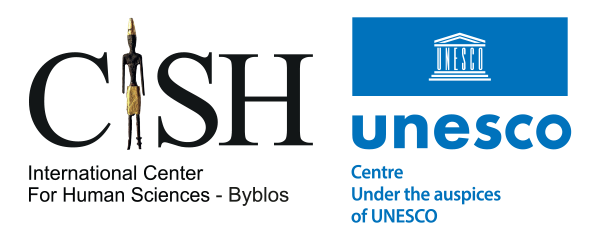Introduction of the book “From citizenship to citizenship education: process and challenges”
In her letter to the Lebanese State, through the ministry of culture, mediated by Lebanese ambassador to UNESCO, Mrs. Sylvie Fadlallah, the General Director of UNESCO, Mrs. Irina Bokova said:
“It’s the least to say that the International Center for Human Sciences has a key role to play, and I, in advance, applaud the efforts that seek to strengthen the bonds of cooperation between Lebanon and UNESCO, in order to make this institution a cornerstone for researches in the field of social and humanity sciences, and a top level interlocutor in relation to the culture of peace”.
After discontinuity of scientific and cultural activities, which were the reason for establishing the International Center for Human Sciences -Byblos- (Lebanon), because of diverse and interrelated reasons related to the local and international conditions, the Center is back again to engage in the assigned tasks, adopting the international project, that was put forward by the United Nations Educational, Scientific and Cultural Organization (UNESCO ), through an international round table, held at its headquarters in Paris in 21- June-2011. Researchers and thinkers from around the world, have participated in the work of this international conference, they presented ideas and proposals, that can form a” road-map” for the optimum idea of democracy, considering an ambitious project and achievable aspirations according to spaciousness of types, and varied styles, not only as a single, imposed and rigid pattern.
Considering the optimum idea, democracy aims primarily to preserve and promote individual dignity and fundamental rights, to guarantee social justice, to foster the economic and social development of the community as a whole, to strengthen social cohesion and national order, and to engender a climate suitable to international peace. As a way of managing the state affairs, democracy also has the unique virtue of establishing a political system capable of self-correction. This is mentioned in the” road-map”, drawn up by (UNESCO), which makes the International center for Human Sciences in Byblos, hold the responsibility to go into the midst of the details, by putting procedural and research programs, in multidisciplinary fields of human sciences.
No matter how different and varied the methods and ways are, that lead countries to change to democracy, ” citizenship education” remains the pivotal procedural means, that should be strengthened, and put into practice by creative, capable ideas and by providing appropriate opportunities to achieve its goals. In this context, the International Center for Human Sciences, in its first appearance, and in this new phase of joining other Centers that work under the auspices of UNESCO, has the pleasure to publish a book entitled “from citizenship to citizenship education: process and challenges” by Prof. Nemer Frayha.
Dr. Frayha is an international expert in educational affairs, have known him in Lebanon as a professor at the Faculty of Education, in the Lebanese University, then the head of the Educational Center for Research and Development, and then became a consultant for Curriculum Education in Oman between 2004 and 2009, and then dean of the College of Sciences and Arts at the University of Zofar (Sultanate of Oman) between 2009 and 2011, to return to the Lebanese University as an instructor at the Higher Institute for PhD.
Dr. Adonis Al Akra
The International Center for Human Sciences Director
Byblos – Lebanon
Table of contents
Dedication
Presentation
Part One: Emerging and development of citizenship
Introduction
Citizenship in ancient time
Athenian model
Romanian citizenship
Byzantine citizenship
Citizenship and religion
Christian concept of citizenship
The hundred year war and citizenship
Church and citizenship after “Westphalia”
Islam concept of citizenship
The citizenship at present in the Islamic State
Secularism and the identity in the modern state from an Islamic perspective
Contemporary citizenship
Citizenship and Democracy
Citizenship and dictatorship
Citizenship and revolution: The Arab spring model
Dimensions of contemporary citizenship
Citizenship and Gender
Citizenship and development
Cosmic citizenship and globalization
Electronic or digital citizenship
Challenges of citizenship
The content of pluralistic society
The erosion of national sovereignty
Society with high illiteracy rate
The driven society
Weakness of faith in homeland
Intolerance
The religious identity
Marginalization of competencies
Part two: Citizenship education for a constructive citizenship
Introduction
Depending on education to achieve citizenship
Educational philosophy and citizenship education
The educational process
Curriculum and citizenship education
Academic materials and citizenship education
Teaching methods
Rating
The teacher
The educational atmosphere
The fields of citizenship education and elements
Cognitive domain
Skill area
Moral domain
The national field
The area of participation
Citizenship education, technology and development
Citizenship education and globalization
Citizenship education challenges
Academic challenges
The role of decision-makers
Cloning future citizens
Political, social and economical practices
Different affiliations and loyalties
Citizenship education and the future
The flowering of educational philosophy
Educational policy input
Curriculum development
Preventing citizenship education from being an academic material
Teacher training
Sophisticated school
Effective school management
Presenting the ideal manager
Arabic references list
Foreign references list

